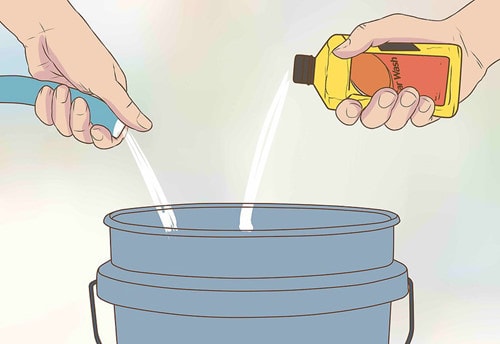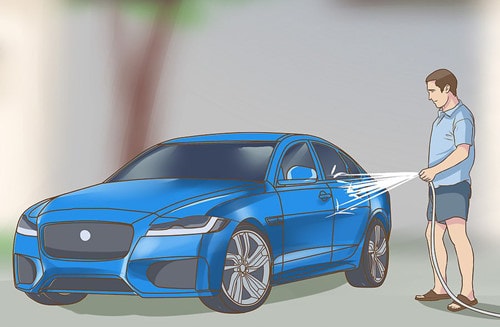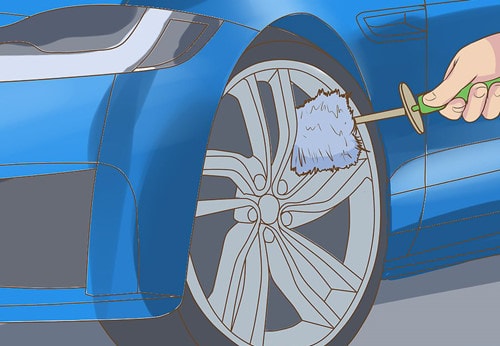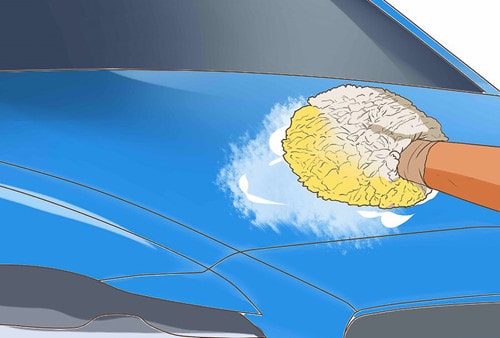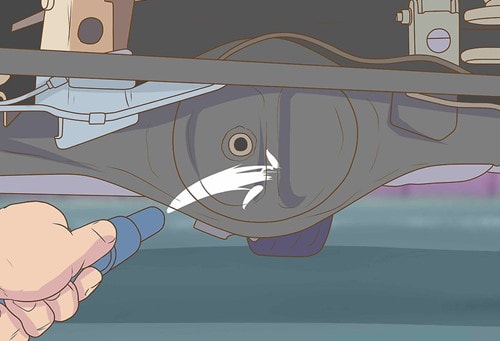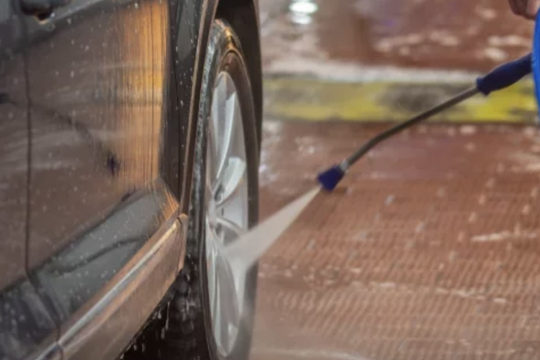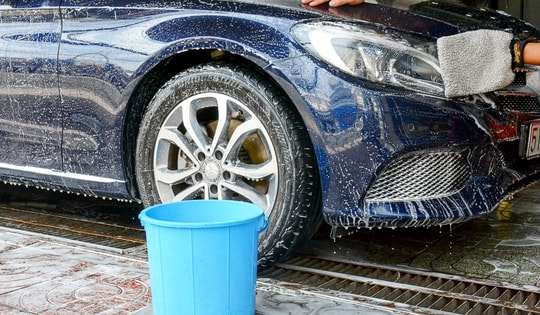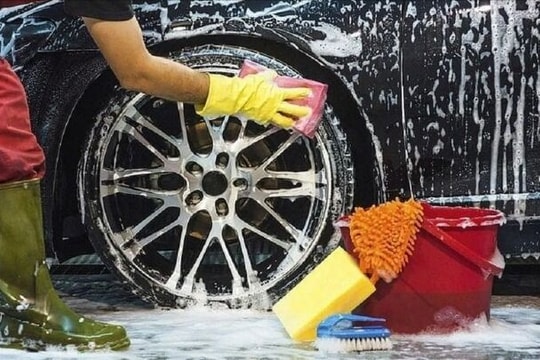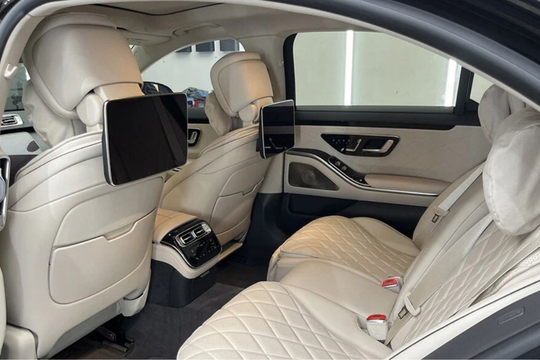Steps to wash your car at home properly to avoid damaging the paint
Washing your car at home helps car owners save money and take better care of their "baby". However, when doing it, you need to have enough tools and follow the instructions correctly to avoid scratching the car's paint surface.
 |
Washing cars at home helps car owners save money and take better care of their "beloved cars". |
With the traffic conditions in Vietnam, each car in use needs to be regularly cleaned, washed away mud, dirt to avoid mold, rust on parts and details on the car. Instead of leaving it to car washes, many car owners often do this at home to save costs as well as have more time to take care of their car. However, if car washing is not done properly, it will easily scratch and degrade the exterior paint surface as well as other details on the car.
Therefore, when washing the car by hand, the car owner needs to follow the instructions below from Wikihow to help keep the car clean and not damage the car's paint surface:
Park in the shade, avoid direct sunlight.
When washing a car in the hot sun, the surface of the car can be heated, causing the water to evaporate faster and making the car washing process more difficult. Therefore, before washing the car, park the car in a shady area or choose early morning or afternoon when the sun is not too strong. This will help the car not dry too quickly and leave stains. Close all windows to prevent water from entering the car's interior. |
Prepare the necessary items for car washing
If you regularly clean and wash your car at home, you should prepare the appropriate items to achieve efficiency and not affect the details on the car. Cleaning items include: car wash soap, water supply (depending on the size of the car), at least 2 buckets (one bucket for washing, one bucket for rinsing), a water tap, microfiber towels or bath towels to dry the car. In addition, you should prepare two or three specialized car washing gloves, a large sponge, and you may also need a separate brush to scrub the wheels. |
Use specialized solution, mix in the correct ratio
Do not use laundry soap or dish soap because these solutions contain a lot of detergents, high alkalinity... which can easily affect the protective layer of the paint surface, over time will reduce the color of the car's paint. Instead, you should buy soap specifically for washing cars sold at auto parts stores. |
Use at least two buckets when washing your car, mix soapy water in the first bucket, mixing the right ratio of water and soap according to the manufacturer's instructions. The remaining bucket contains clean water to rinse the towel. |
Use a water jet to soften and loosen dirt and sand stuck on the car.
Use a hose to spray off mud and dirt from the body and wheel arches. Do not use a hose with too much pressure on the car, as this can cause dirt to rub against the paint and cause scratches. Try to spray water from top to bottom on all surfaces of the car to remove dirt. |
Pre-wash all 4 wheels
The wheels are usually the dirtiest part of the car, so they should be washed first to prevent dirt from splashing onto other parts that have already been cleaned. For this part, a special brush should be used to scrub the grooves on the wheels and rims. If the wheels are already clean, a sponge can be used to wash the wheels just like washing the car body after spraying off dirt. |
Use a soapy cloth or sponge to wash the car.
Use a large cloth or sponge dipped in soapy water to wipe down the car's body surfaces. Do not use a scrub brush on the body, as this may cause small scratches. |
Wash each area, starting with the roof.
Wash the car from top to bottom, allowing the soapy water to run down. This will avoid having to wash the same spot twice. If the car is very dirty, let the soap and water do its work. Rinse frequently and avoid scrubbing the car with grit, as this can scratch or damage the paint. |
Clean the cleaning cloth and sponge after each wipe.
After each time using a cleaning cloth or sponge to wipe the car surface, dip it in a bucket of water, rinse it before dipping it in a bucket of cleaning solution to continue wiping. This will remove sand particles stuck on the cloth or sponge, helping to prevent scratches on the car after each wiping. Wash the cleaning cloth regularly in a bucket of clean water and replace the water when the water becomes cloudy or contains grit or sand. |
Use a water hose to wash the car body after wiping with soap.
After cleaning each area of the body, use a hose to rinse it off. Do not let the soap dry and stain the paint. Always wash the door jambs, the moldings (the metal around the window frame) and the bottom of the doors. |
Use a water hose to spray under the car
Once you have washed most of the car's surface, use a hose to spray the undercarriage from different angles. |
Use a clean towel to dry the car.
Use a soft, absorbent cloth to dry all washed body surfaces to prevent rust. Make sure no water is left on the vehicle while it dries, as this will dull the paint or cause rust. |



